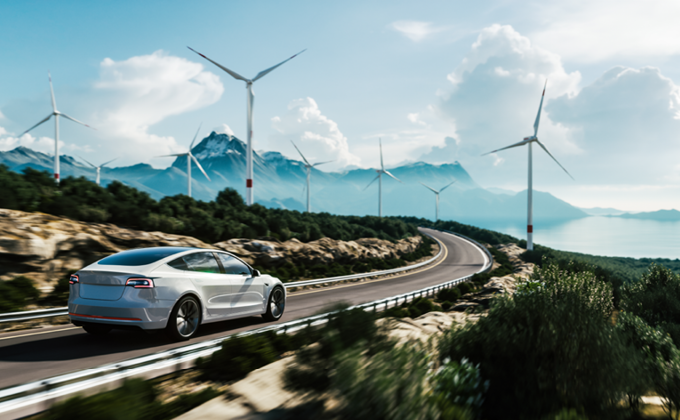The UK's Shift Towards Electric Vehicles – Are They Worth It?
As rumours circulate about China potentially introducing remote-controlled electric vehicles, the automotive industry worldwide is witnessing a revolutionary shift towards electric mobility. In the UK, this transformation has been fuelled by the Prime Minister's commitment to phasing out petrol and diesel cars by 2030.
The world is rapidly transitioning towards a more sustainable future, and the automotive sector is at the forefront of this movement. Electric vehicles have emerged as a pivotal technology in reducing greenhouse gas emissions and addressing climate change. In the UK, an extraordinary shift in the market dynamics concerning electric vehicles is well under way.
When Will All Cars Be Electric in the UK?
In 2030, the UK will ban petrol and diesel vehicles, ushering in a fully electric future. All new UK cars must be electric or zero-emission, and petrol/diesel options will be discontinued. In November 2020, the former UK Prime Minister, Boris Johnson, announced an ambitious plan to ban the sale of new petrol and diesel cars by 2030, a decade earlier than initially planned. This move is part of the UK's wider commitment to achieving net-zero emissions by 2050. The reinforced announcement from the current Prime Minister, Rishi Sunak, sent a clear signal that the future of transportation lies in electric mobility by committing to 2030.

Source: Shutterstock
Increasing Adoption of Electric Vehicle’s
The promise to phase out conventional internal combustion engine (ICE) vehicles has spurred significant interest in electric vehicles across the UK. With concerns over air pollution and climate change rising, consumers are increasingly opting for greener alternatives. The automotive industry has responded by introducing a wide range of electric cars, including hatchbacks, SUVs, and even luxury models, making EVs accessible to consumers from all walks of life.
Infrastructure Development
However, the successful integration of electric vehicles into mainstream transportation hinges on vast volumes of charging infrastructure. The UK government is actively investing in the expansion of public charging points to cater to the growing number of EVs on the roads. This infrastructure development is essential for hitting that 2030 target year.
Shift in Energy Consumption
Embracing electric vehicles in mass brings both opportunities and challenges to the energy sector. The UK's transition to EVs will inevitably increase electricity demand, necessitating a strategic approach to power generation and distribution. To meet this demand, the government and energy companies are investing in renewable energy sources such as wind, solar, and hydroelectric power to reduce carbon emissions associated with EV charging.
The Role of Automakers
The UK's automotive industry has played a significant role in the country's economic growth. As the EV market gains momentum, traditional automakers are reevaluating their strategies. Many manufacturers have committed to transitioning their entire vehicle lineup to electric or hybrid models, demonstrating a concerted effort to support the nation's clean energy goals.
Challenges and Opportunities
China has recently unveiled a groundbreaking electric vehicle (EV) that has garnered significant attention worldwide. This cutting-edge EV features remote-controlled capabilities, showcasing the country's dedication to advancing automotive technology. With its sleek design, impressive range, and state-of-the-art features, this new electric vehicle promises to revolutionise the transportation industry. As China continues to push for greener and more sustainable mobility solutions, this innovative EV represents a major stride towards a cleaner and emission-free future for the global automotive landscape.
 Source - BBC
Source - BBC
The UK's shift towards electric vehicles is a testament to the country's commitment to sustainable transportation and a greener future. The Prime Minister's bold decision to ban petrol and diesel cars by 2030 has acted as a catalyst for change, prompting automakers, consumers, and the energy sector to adapt to this transformative era. Although challenges lie ahead, the collective efforts of the government, businesses, and citizens will pave the way for a cleaner and more sustainable transportation landscape, setting an example for the world to follow in the fight against climate change. As we eagerly anticipate the rise of electric vehicles on UK roads, the journey towards a cleaner and more sustainable future has undoubtedly begun.
Should I buy an Electric Vehicle?
- Price - Electric cars may have a slightly higher upfront cost, but they offer long-term savings thanks to government incentives, cheaper running costs, and lower maintenance costs.
- Range - In the UK, market dynamics are shifting significantly towards electric vehicles thanks to competitive driving ranges suitable for daily commuting and longer trips. This is helped further by an improving charging infrastructure.
- Running Costs - Electric cars have the clear edge when it comes to running costs. Electricity is much cheaper than petrol or diesel, resulting in lower day-to-day expenses. Fewer moving parts in EVs also leads to reduced maintenance costs and increased reliability.
- Charging Times - Fast-charging technology has significantly improved charging times for electric cars. Many EVs can now reach a usable charge level in just a few hours, making charging more practical and time-efficient for day-to-day use. This only becomes a concern for longer journeys, when you should allow plenty of time to charge your car in advance.
Electric cars are a worthwhile investment but before deciding if it’s for you, you should weigh up all the points above. They can be affordable on the right plan, driving ranges are improving, they offer lower running costs, and faster charging times, which all makes for a more compelling choice for environmentally conscious and budget-savvy drivers. Embracing electric cars means embracing a greener and more sustainable future.

